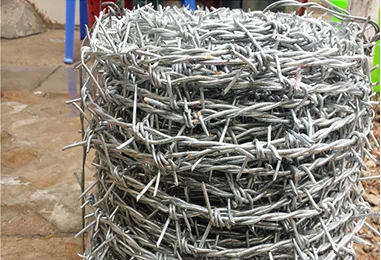 TEL:
+86-13102802206
TEL:
+86-13102802206
 Email:
fencenetting@china.com
Email:
fencenetting@china.com
 Language
Language
 TEL:
+86-13102802206
TEL:
+86-13102802206
 Email:
fencenetting@china.com
Email:
fencenetting@china.com
 Language
Language


Understanding Gabion Mesh An Essential Component in Modern Engineering
Gabion mesh has gained significant attention in modern construction and civil engineering due to its versatility, strength, and ecological benefits. This framework comprises wire mesh cages filled with rocks, stones, or other materials, creating structures that are not only robust but also aesthetically pleasing and environmentally friendly. This article aims to explore the different aspects of gabion mesh, its applications, and its advantages.
What is Gabion Mesh?
At its core, gabion mesh is a type of wire mesh container that is primarily designed to hold rocks or other materials. These containers can vary in size and shape, but traditionally, they are rectangular and come in a range of mesh sizes depending on the intended use. The wire mesh itself is typically made from galvanized steel or PVC-coated steel, which provides resistance against rust and corrosion. This durability makes gabion mesh an ideal choice for long-term projects that require significant structural integrity.
Applications of Gabion Mesh
Gabion structures are incredibly versatile and find application in various fields, including
1. Retaining Walls Gabion walls serve as an effective solution for preventing soil erosion and managing slopes. The porous nature of gabions allows water to flow through, reducing hydrostatic pressure behind the wall and preventing failure.
2. Flood Control In areas prone to flooding, gabion mesh can be used to create dams and barriers. These structures can absorb water and mitigate the impact of floodwaters, protecting nearby infrastructure and ecosystems.
3. Riverbank Protection Gabion mesh is frequently employed in riverbank stabilization projects. The structure supports the bank against erosion, while the filled materials provide a natural habitat for various flora and fauna.
4. Landscaping The aesthetic appeal of gabion structures has made them popular in landscaping. From garden walls to decorative feature walls, gabion mesh can be designed to integrate seamlessly into outdoor spaces.

5. Road and Bridge Construction Gabion mesh is often used in civil engineering to provide stability to roads and bridges. Its ability to accommodate changes in soil movement makes it an attractive option for these applications.
Advantages of Gabion Mesh
The use of gabion mesh presents several advantages that make it a preferred choice in many engineering projects
1. Eco-Friendly Gabions are made from natural materials, which means they can blend into the surrounding environment. Additionally, they support plant growth and can enhance biodiversity.
2. Cost-Effective Gabion structures are often more economical than traditional concrete walls, as they require less material and labor. Local stones can typically be sourced and used, reducing transportation costs.
3. Durability and Longevity The use of galvanized or PVC-coated steel ensures that gabions can withstand harsh weather conditions without deteriorating quickly. This resilience makes them suitable for long-term use.
4. Ease of Installation Gabion mesh is relatively easy to install compared to other construction materials. It does not require specialized machinery or complex processes, leading to quicker project completion.
5. Versatility Gabion structures can be customized in size and shape, making them adaptable to various projects. Whether used for small landscaping features or large-scale civil engineering undertakings, gabions can meet diverse requirements.
Conclusion
Gabion mesh is much more than a mere wire container; it is a multifaceted solution that meets various engineering needs while promoting environmental sustainability. With its numerous applications and inherent advantages, gabion mesh has solidified its place as a valuable resource in modern construction. As industries continue to look for innovative and eco-friendly building solutions, the popularity of gabion mesh is likely to grow, heralding a new era of smart construction practices.